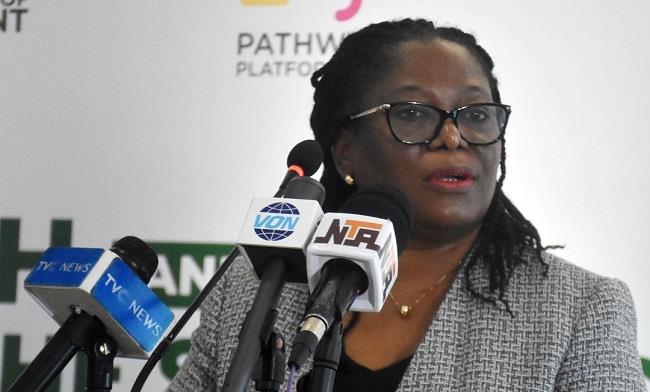Nigeria recently updated its Nationally Determined Contribution (NDC) to the United Nations Framework Convention on Climate Change (UNFCCC).

A statement from the Presidency said President Muhammadu Buhari revealed the update of county’s NDC at a virtual meeting hosted by U.S. President Joe Biden.
The NDC is a country-by-country climate change action plan commitment to cutting greenhouse gas (GHG) emissions and adapting to climate impacts within the Paris Agreement.
According to the UN Climate Action, each party to the Paris Agreement is required to establish an NDC and update it every five years.
Furthermore, at the 2021 UN Climate Change Conference (COP26) in Glasgow, Scotland, an agreement was reached for all countries to revisit and reinforce their NDC targets in 2022.
“Each new round of updates is expected to ratchet up ambition through steeper emissions cuts and more expansive adaptation measures,” a statement by UN Climate Action read.
Nigeria had submitted an interim NDC to the UN in May 2021 and this updated version, in compliance with the Glasgow Climate Pact reached at COP26, shows the country’s commitment to reducing GHG emissions.
Under the updated NDC, Nigeria intends to eliminate the use of kerosene lighting by 2030, increase the use of buses for public transport and reduce the burning of crop residues by 50 per cent.
“Our updated NDC includes the waste sector, which is expected to contribute to the reduction of Nigeria’s Greenhouse Gas emissions.
“This development raised an additional two per cent to the Nationally Determined Contribution from 45 per cent to 47 per cent conditionally and 20 per cent unconditionally below business-as-usual.
“Other action plans that are inherent in our NDC include: elimination of kerosene lighting by 2030, increase in the use of bus rapid transit as a means of transportation for the public, 50 per cent reduction in the fraction of crop residues burnt by 2030 and implementation of forest programmes,” it said.
The updated NDC also aims at improving air quality and reducing GHG emissions through specific mitigation measures in eight source sectors.
The sectors are: transportation, cooking and lighting in households, industry, waste, oil and gas, agriculture, power and Hydrofluorocarbon.
The prompt update of Nigeria’s NDC shows its global commitment towards embracing sustainable measures which limit the rate of global warming and other negative impacts of climate change.
Already, the country’s Department of Climate Change has developed and finalised a Sectoral Action Plan (SAP) for the implementation of the updated NDC in priority sectors.
However, the ambitious and audacious provisions of its updated NDC should be cautiously balanced against its socio-economic realities and reciprocal commitments from developed countries.
Huge research gaps could have resulted in insufficient understanding of Africa’s exact contribution to GHG emissions. Nevertheless, experts have put that number at around 3 per cent of total global GHG emissions.
Also, unlike in developed economies, the largest part of Africa’s GHG emissions comes from Agriculture, Forestry and Other Land Use (AFOLU).
Sadly, as low as its collective contribution is to GHG emissions, Africa is the most vulnerable continent to climate change impacts under all climate scenarios above 1.5 degrees Celsius.
Since the Paris Agreement provides adequate framework for financial, technical and capacity building support for countries in need, Nigeria’s commitment to climate change should be based on how much assistance it secures in those areas.
Experts have warned that individual countries’ NDC will only achieve little if efforts to reduce global warming by wealthy polluting countries are not focused on African countries, which are the least polluters.
The Glasgow Climate Pact has revealed that developed countries have not matched words with actions when it comes to assisting vulnerable countries.
Paragraph 44 of the Pact noted with “deep regret” that developed countries failed in their promise to jointly mobilise 100 billion U.S dollars per year by 2020 for mitigation actions.
It also said transparency in the implementation of finance, technology and capacity-building for mitigation and adaptation had not been met by wealthy countries.
The pact “calls upon developed country parties to provide greater clarity on their pledges” and urged them to deliver on their pledges.
It also emphasised transparency in the implementation of wealthy and heavy polluting countries’ pledges.
Nigeria (and Africa at large) has already been disproportionately vulnerable to the effects of climate change as a result of poor access to financial resources, know-how and capacity to respond to climate change effects.
Why then should it be more committed to the Paris Agreement’s NDC than wealthy countries who account for the bulk of global GHG emissions?
For perspective, while Africa contributes a mere 3 per cent to global GHG emissions, the US and China combined are responsible for close to 40 per cent.
China, the U.S., Japan, Germany and South Korea are all in the top 10 of the list of heaviest polluters and are all deploying finance, technology and capacity building to achieve zero-carbon solutions.
Unfortunately, they seem to be leaving developing countries behind.
Eliminating the use of kerosene lighting by 2030, for instance, as stipulated by Nigeria’s updated NDC is desirable.
After all, a recent report suggested that the use of kerosene and firewood exposes 30 million Nigerian households to severe health hazards.
Yet, firewood, charcoal and kerosene remain the most used means of domestic cooking in Nigeria.
With the price of cooking gas out of the reach of the vast majority of Nigerian households, what alternatives are available for Nigerians when that provision of the NDC becomes effective?
To make households convert to Liquefied Natural Gas (LNG), the product will have to be heavily subsidised and made readily available.
This is one reason, among many others, why the world should address the issue of climate change as a multilateral crisis which requires international cooperation.
Therefore, to strengthen climate action, wealthy countries should consider the growth and development of vulnerable countries by paying their fair share rather than making endless demands.
By Kayode Adebiyi, News Agency of Nigeria (NAN)
